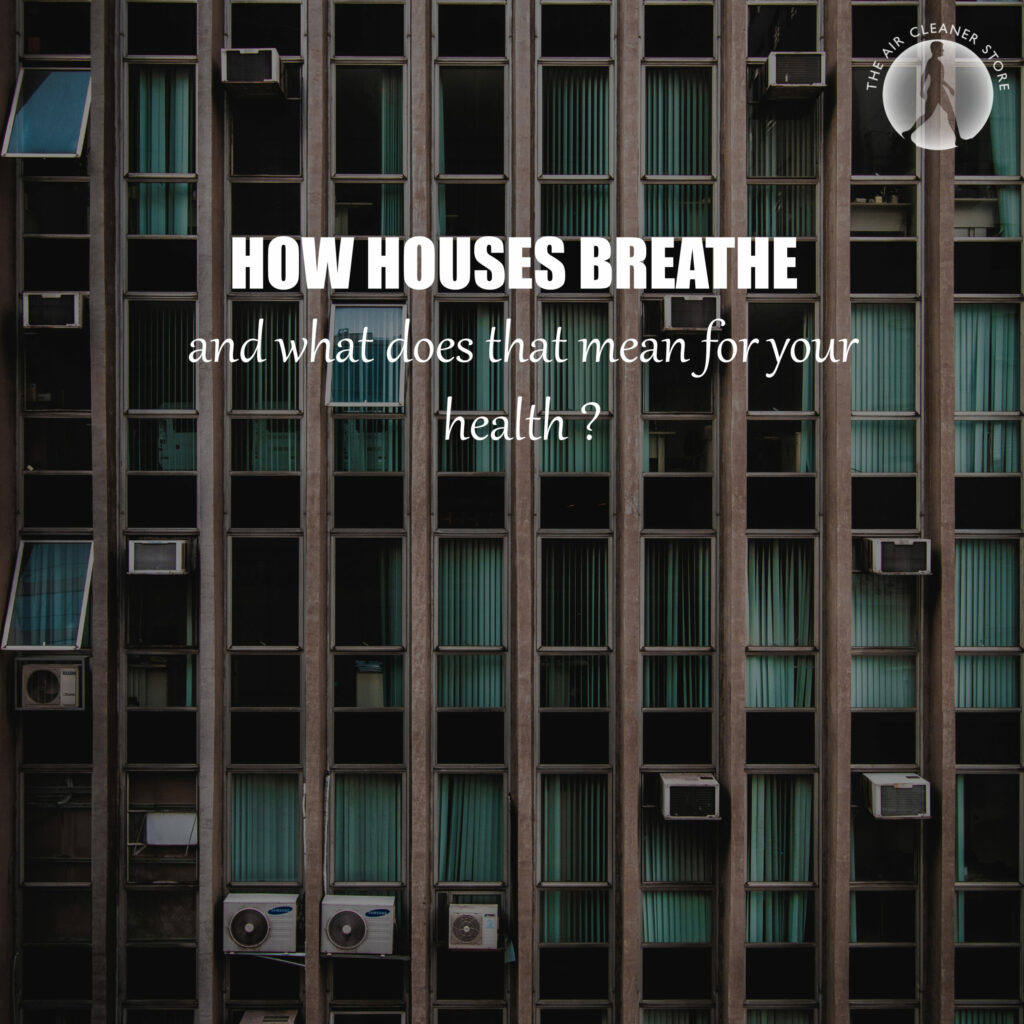Indoor Air Quality
The walls, doors, and windows inside your home provide essential comfort, sheltering you from the elements – wind, cold, rain, snow and heat. While the roof over your head, and floor below offer important protection, your house may suffer from poor indoor air quality. Older homes are often drafty with large amounts of outside air entering the house. If the outdoor air is polluted, this toxic air comes into your home and puts you at risk. Newer homes sometimes suffer from the opposite problem; they are often too well sealed, and provide inadequate air exchange. If construction materials or home goods are off gassing, harmful chemicals become trapped inside.
Indoor air quality can be 3 to 5 times more polluted than outdoor air, according to the Environmental Protection Agency. Your home could be full of possible contaminants that accumulate in an enclosed room and may have a negative impact on your health. When air exchange is inadequate, these irritants become trapped inside, putting you at risk for coughing, sneezing, wheezing, nausea, respiratory problems, and allergic reactions. These problems may well be symptoms of poor air quality in your home. While you may not be able to control the air pollutants you are exposed to outside your home, you can control those that are present within. Here’s everything need to know about, how houses breathe?
How Houses Breathe
Homes, like lungs, need the ability to “breathe” in order to ensure that new air enters and polluted air exits (air exchange). Excessive moisture, odors, fumes, dust, and other contaminants can accumulate and affect indoor air quality. Fresh outdoor air is required to dilute indoor contaminants and keep the air clean. Enough outside air must be brought inside and circulated to ensure that it enters all parts of the house in order to have good indoor air quality.
Air enters and exits buildings in three separate ways:
1.Through open doors and windows.
2.Through cracks and gaps in the floors, walls, around windows and pipes,
3. Via ventilation systems that bring air into and out of buildings. These systems range from mechanical (kitchen exhaust systems, or fans in bathrooms) to whole-house ventilation systems.
How Proper Ventilation and Air Cleaning Systems Protect Your Health
While most people concentrate on enhancing the appearance of their home, they forget to ask themselves the most important question- How does the air in your home affect the way that you feel?
Apart from the fact that indoor air pollution can cause a variety of health problems and complications, the air quality in your home also has a major impact on how you feel on a daily basis. It affects your mood, energy levels and productivity.
Proper ventilation and an air cleaning system can help you protect you and your family from the many pollutants and harmful chemicals that we encounter everyday in indoor spaces.
Here is how you can use ventilation to protect your health and well being:
- Install an exhaust fan in your kitchen to transfer the air outside. When cooking, use a fan or open a window to help remove moisture, fumes and airborne particles.
- Extract moisture from bathrooms with exhaust fans.
- Vent clothes dryers to the outside. Clean the vent on a regular basis to ensure that dust does not obstruct air flow.
- Ensure that all gas, propane, wood, and other combustion equipment are fully vented to the outside. Avoid using any ventless source of combustible heat.
- Consider installing a carbon monoxide detector in your home.
- Test your home for radon levels, and if they’re high, hire a specialist to install ventilation system to get rid of it. Radon is the second lead cause of lung cancer according to The American Lung Association
- Consider investing in a high quality air cleaner. Air cleaners filter out mold, bacteria, viruses and any harmful pollutants from indoor air. An air cleaner that meets the HEPA standards, with an activated carbon filter, such as HealthMatePlus , removes over 3000 chemicals, odors and gases from the air, including formaldehyde, sulfur dioxide, hydrogen sulfide, benzene, ammonia nitric oxide and volatile organic compounds.
- In homes with an attached garage, never leave your car idling. Car exhaust easily finds its way into your home, which puts your health at high risk.
- Control indoor humidity. You can do this by installing a dehumidifier to keep moisture levels in the normal range.
